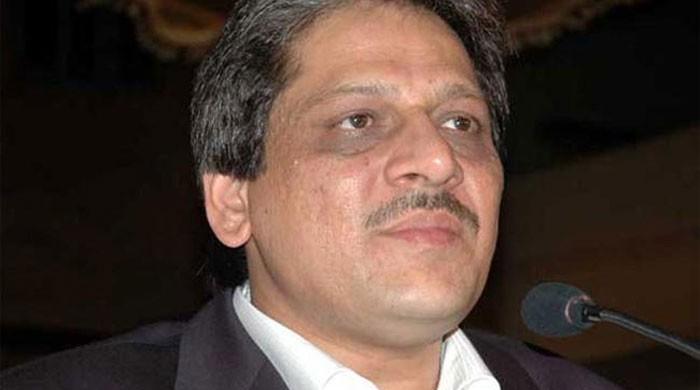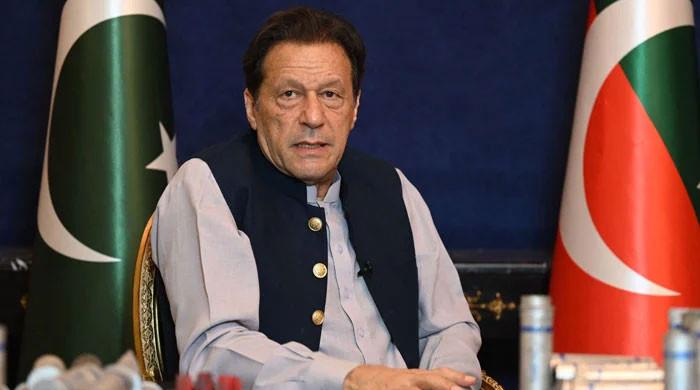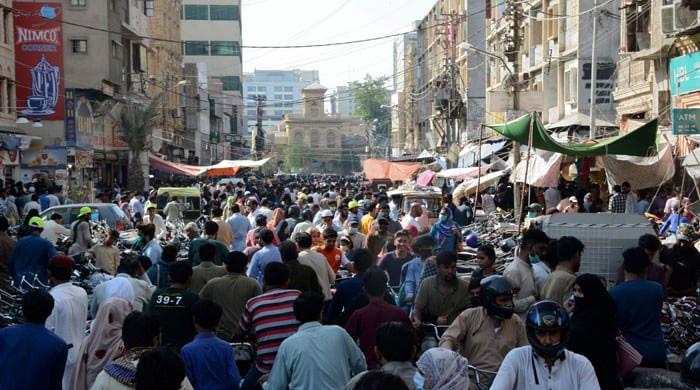The strange case of Dr Ebad
'Dr Ishratul Ebad should have resigned years ago instead of keeping his privileged job for so long that he had to be finally shown the door'
November 30, 2016

Sindh Governor Dr Ishratul Ebad should have resigned years ago instead of keeping his privileged job for so long that he had to be finally shown the door.
And Saeeduzzaman Siddiqui, the distinguished former chief justice of the Supreme Court of Pakistan, should not have agreed to become the governor of Sindh at this old age when he is frail and ailing.
These are idealistic thoughts, but there is nothing wrong in being an idealist.
Ishratul Ebad was appointed the 30th governor of Sindh by military ruler General Pervez Musharraf on December 27, 2002. It was obvious his appointment would not have been possible without the consent of the Muttahida Qaumi Movement (MQM) or, precisely, of its founder Altaf Hussain who at the time was all-powerful. Musharraf wanted to oblige the MQM and it became evident in subsequent years of his long rule that he had patronised the party.
Ishratul Ebad never tried to hide the fact that he was the MQM’s man even though governors ought to be neutral and apolitical. His appointment was controversial and there were unsubstantiated accusations against him that he was involved in certain criminal cases.
When he lost trust of the MQM leadership, there was no justification for Ishratul Ebad to stay in office because he was appointed primarily to work as a go-between for the government with the MQM. In fact, during his tenure the Governor’s House until 2012 was the centre of MQM activities and the place to look to whenever the party’s cadres needed official help to sort out problems.
There were also other occasions when it was obvious that he had overstayed his welcome in the Governor’s House. Once he went abroad and stayed longer than expected. It was said at the time that he had quit and wouldn’t be coming back. However, Ishratul Ebad had no intention of quitting and before long he was back in his job. Otherwise, he would not have remained the governor for almost 14 years and set a record of sorts. It is certainly a record in Pakistan for a governor to remain in office for so long, though one has read that it is also a world record.
By the time he was belatedly replaced, Ebad had become a permanent fixture in the palatial Governor’s House. In fact, he was the youngest governor of Sindh when he got the job and was getting old at the time of his removal. Once hailed by MQM activists as an asset and a man of crises, his party leadership wanted him to be removed post-2012.
Another recent occasion for him to step down was when he became involved in an ugly verbal exchange with the Pak Sarzameen Party head and former Karachi mayor Mustafa Kamal. The way the two former MQM leaders stooped low and publicly ridiculed each other was bizarre and unfortunate. They accused each other of corruption and misuse of power. They had known each other for years, worked together and also praised one another at the time. Many felt both should have been investigated as the allegations were too serious to be ignored.
The kind of language used by them left much to be desired. In particular, Ishratul Ebad should not have used the words he chose to describe Mustafa Kamal considering the fact that he was holding the high office of the governor of a province. Besides, he had the reputation of being a soft-spoken and friendly man and his choice of words showed that he could be a different person when angry. Some would say the guitar-playing Ishratul Ebad went overboard and reacted rather harshly. Finally, though, he realised his mistake and called a ceasefire.
Though Mustafa Kamal was right when he predicted that Ishratul Ebad wouldn’t stay for a day in Karachi once he was no longer the governor, he too emerged bruised from his verbal encounter with his former MQM colleague. The fact that his party isn’t doing well in terms of seeking the support of the Urdu-speaking Mohajirs seems to have gotten on his nerves and it appears he considers Ishratul Ebad one of the reasons for the PSP’s less-than-expected performance. With the MQM Pakistan and the MQM London fighting it out for the Mohajir support and vote, the PSP has been pushed to the sidelines of the politics in Karachi and other urban centres in Sindh.
It was strange that successive governments of different political parties such as the PML-Q, PPP and the PML-N, along with military dictator General Musharraf, kept him as governor for such a long time. One explanation is that the powers that be wanted him to remain the governor to keep the MQM leadership in good humour and ensure that urban centres like Karachi, Hyderabad, Sukkur, etc – where the MQM enjoyed support – remained calm and peaceful.
Another reason could be that, being an Urdu-speaking Mohajir, he was able to represent his people in a government run and dominated by Sindhis. In fact, it has now become a principle that a Sindhi is chief minister of Sindh and an Urdu-speaking Mohajir is the governor. So even if the MQM is not part of the coalition government in Sindh, there is still a Mohajir governor who is expected to speak up for his people using whatever little power he has in this glorified job.
An Urdu-speaking Mohajir had to be found to replace Ishratul Ebad and Prime Minister Nawaz Sharif, through his handpicked President Mamnoon Hussain, didn’t want to look beyond a loyal party man to fill the vacancy. Rewarding loyalists has long been a tradition with the Sharif family and the same principle had earlier been applied in case of Mamnoon Hussain.
Saeeduzzaman Siddiqui fit the bill and was made the governor apparently without anyone checking out his health status. His first appearance on television after being made governor clearly showed that he is now too old and ill to shoulder this responsibility. Within a few days he had to be hospitalised, allowing critics of the government to further ridicule the government for its choice.
The PPP government in Sindh had already been complaining that it had not been consulted about the appointment of the governor. The provincial government was justified in making this complaint because Chief Minister Murad Ali Shah being a PPP nominee would have to build a working relationship with the governor, and this would have been easier if he had been taken into confidence about this important decision by the PML-N-led federal government.
Justice Siddiqui, a gentleman and honourable man, would have been a good choice as governor, or for any other public office, when he was healthy and less elderly. He has had a distinguished career in the judiciary and his refusal to take oath under General Musharraf’s PCO contributed to his reputation as an upright and independent-minded judge. However, he is now nearly 80 and unwell. His image would have been enhanced if he had declined the offer to become the governor.
--Originally published in The News. The writer is resident editor of The News in Peshawar.











